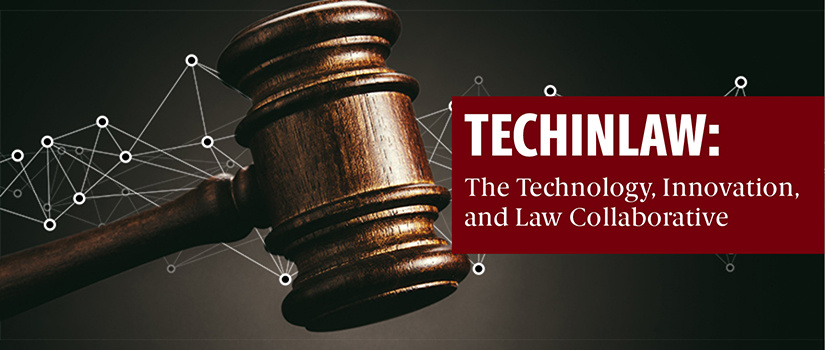Click Here for Video of Symposium Morning Recording
Click Here for Video of Symposium Afternoon Recording
Agenda
8:30 AM - Welcome
- Gary Moore, Assistant Dean for Academic Technology and Executive Director, TechinLaw Collaborative, University of South Carolina Joseph F. Rice School of Law
- William Hubbard, Dean, University of South Carolina Joseph F. Rice School of Law – Introduction of Welcome Address Speaker
8:40 AM – 9:00 AM - Welcome Address – Donna Tillis, Partner, Nelson Mullins Riley, and Scarborough
9:00 AM - 10:15 AM - Panel 1 – “Cryptocurrency Litigation and the Need for Regulation and Reform”
- Moderator - Tyler Passarella, Class of 2024, USC Joseph F. Rice School of Law. President of the Blockchain Law Society
- Dave Maxfield, Esq.
- Graham Newman, Partner, Chappell, Chappell, and Newman
- Jordan Teague, Esq., Campbell Teague
- Blake Kennedy, Assistant Attorney General, South Carolina Attorney General’s Office
10:15 AM – 10:30 AM – Break
10:30 AM – 11:45 PM - Panel 2 – “AI and Employment Algorithms– What Lawyers Need to Know About These Tools, Potential Biases and Upcoming Regulation”
- Moderator - Joe Seiner- Oliver Ellsworth Professor of Federal Practice, University of South Carolina Joseph F. Rice School of Law
- Leigh Ellen Gray, Campbell Teague
- Commissioner Keith E. Sonderling, U.S. Equal Employment Opportunity Commission
- John Browning, Distinguished Jurist in Residence, Faulkner University School of Law, and Chair of the State Bar of Texas Taskforce on AI and the Law
- Rick Oppedisano, Delta Bravo AVI
11:45 AM – 12:45 PM –Lunch (Lunch provided for Panelists/Presenters/Dignitaries. Attendees – Lunch on Your Own including Food Truck)
12:45 PM – 1:15 PM - Keynote Address – “The Role Technology Played in the Alex Murdaugh Case” - Creighton Waters, Chief Attorney, State Grand Jury Section At South Carolina Office of the Attorney General
- Introduction by Derek A. Shoemake, Kershaw City Councilman and Attorney, Connell, Law Firm
1:15 PM – 2:30 PM – Cybersecurity and South Carolina
- Moderator – Joshua Ayers, Class of 2025, University of South Carolina School of Law. President of the National Security Society
- Derek Shoemake, Kershaw City Councilman and Attorney, Connell Law Firm
- Megan Stifel, Chief Strategy Officer, Institute for Security and Technology
- Dr. Csilla Farkas, Professor of Computer Science and Engineering, Director of the Center for Information Assurance Engineering, University of South Carolina
- Thomas Scott, CEO, Founder, CyberSherpas, and Executive Director of the South Carolina Cybersecurity Association and Foundation
2:30 PM – 2:45 PM - Break
2:45 PM – 4:00 PM – From Electrification to Automation: How Innovation Is Changing Vehicle Law
- Moderator – Marianna McDevitt, Class of 2023, Nelson Mullins Riley and, Scarborough
- Bryant Walker Smith, Associate Professor of Law and Faculty Director, TechInLaw Collaborative, University of South Carolina Joseph F. Rice School of Law
- Harry M. Lightsey III, Secretary of Commerce, South Carolina Department of Commerce
- Derek Devere Tarver Esq., Attorney, Parker Law Group
4:00 PM - Closing Remarks – Bryant Walker Smith, Associate Professor of Law and Faculty Director, TechInLaw Collaborative, University of South Carolina Joseph F. Rice School of Law
Click here for Video of Symposium
Agenda
Welcome Address
- Rebecca Hiatt, Legal Technology Director / Bilingual Staff Attorney, Legal Assistance for Victims (LAV), South Carolina Victims Assistance Network (SCVAN)
Rebekah Hiatt will present on the concerns that victims have centering around technology. Her presentation will also introduce various technologies and websites that can assist victims in documenting abuse, seeking assistance, and recovery.
Panel 1: “AI Tools That Create Non-Consensual Deepfake Pornography, Privacy Concerns and Tools to Combat Non-Consensual Deepfake Pornography and AI CSAM” (9:15 a.m. to 10:45 a.m.)
Panel discussion will include the following topics:
- What are deepfakes and how are they created using artificial intelligence?
- How do AI algorithms generate realistic but harmful content?
- What technologies house deepfake and CSAM?
- Legal and Ethical Implications:
- Ethical considerations related to privacy, consent, and victim protection.
- Detection and Mitigation Strategies Including:
- Techniques for identifying deepfakes and AI-generated CSAM.
- Developing tools and algorithms to combat their spread.
Panelists
- Moderator – Savannah Hobbie, Class of 2025, USC Rice School of Law
- Nathan Abernathy, Judicial Law Clerk to the Honorable Robert J. Bonds (CIPP)
- Joshua Adams, Creative Director, Parent ProTech
- Katie Brown, Associate Dean for Information Resources, Charleston School of Law
- Sara Mays, Class of 2024, USC Rice School of Law
Panel 2 - “Current and Proposed State/Federal Legislation on AI Deepfake Pornography/CSAM and the Need for Additional Legislation” (11:00 a.m. to 12:30 p.m.)
Panel discussion will include the following topics:
- Current state legislation in South Carolina, as well as current federal legislation.
- Current bills proposed in the South Carolina Statehouse and in Congress.
- How can current federal legislation be changed/modified to address these issues?
- How can governments, tech companies, and civil society work together to address this issue?
- Advocacy efforts to strengthen legislation and raise awareness.
The second panel will focus initially on two bills in the South Carolina Senate S.995 and S.996, which deal with Morphed Pornography of Identifiable Children (MPIC) and AI, respectively. There are also two companion bills in the South Carolina House - H.4972 (AI) and H.4973 (MPIC).
2024 Commitee On Children Annual Report (PDF File - See Pages 6 and 7)
Panelists
- Moderator – Michelle Pappas, Class of 2024, USC Rice School of Law
- Katherine “Katie” Orville, Assistant United States Attorney, Charleston, South Carolina
- Chase Mizzell, Engagement Manager, McKinsey & Company
- Carrie Goldberg, Founding Attorney, C.A. Goldberg, PLLC
- Jon Penney, Associate Professor of Law, Osgoode Hall Law School, York University
- Kyle Senn, Senior Assistant Deputy Attorney General, South Carolina Office of the Attorney General
Closing Remarks
- Michelle Dhunjishah, Director, Children's Law Center, USC Rice School of Law
Panelist Bios
Nathan Abernathy - Nathan Abernathy graduated from the University of South Carolina School of Law in May of 2023 and was admitted to practice in November. He currently serves as a law clerk for Circuit Judge Robert Bonds. During law school, Nathan developed a keen interest in privacy law after taking Professor David Sella-Villa’s course, Data Privacy. Nathan’s practical experience includes working at the Enterprise Privacy Office within the South Carolina Department of Administration and serving as a legal policy intern at Privacy Rights Clearinghouse (PRC). At the PRC, Nathan contributed significantly to in-house projects on the California Age-Appropriate Design Code Act and the Children’s Online Privacy Protection Act.
He holds a Certified Information Privacy Professional/United States (CIPP/US) certification from the International Association of Privacy Professionals (IAPP) and actively participates in the IAPP South Carolina KnowledgeNet Chapter as the Young Privacy Professional representative.
Joshua Adams - Joshua is the creative director at Parent ProTech, a company dedicated to equipping
the next generation to safely navigate technology. He oversees all content and curriculum
used in 180+ communities across 12 states.
As a Phi Beta Kappa graduate of Wofford College, Joshua's professional pursuits have
included work at the White House, South Carolina Governor's Office, and South Carolina
House of Representatives. Most recently, he managed YouTube channels with over five
million subscribers in four languages as a YouTube strategist at Elevation Church.
Katie Brown - Kathleen (Katie) Brown is the Associate Dean for Information Resources at Charleston School of Law. Katie received her library degree from the Drexel University School.
In 2005, she completed her JD with an emphasis in intellectual property law. While in law school, Katie was a library intern at Seattle University Law School and a volunteer with Washington Lawyers for the Arts.
Brown’s research and scholarship are in the areas of intellectual property, acting skills for lawyers, law and literature, management, and a variety of legal research related topics. She has taught specialized, beginner, and advanced legal research courses and seminar and doctrinal courses on Legal Technology for Practice, Art of Advocacy, Contracts, and the research component of Legal Research and Writing. Ms. Brown has also previously served as an Adjunct Faculty member for the Meinder School of Business, Master of Science in Energy Legal Studies program in Oklahoma.
She is an active member of the American Association of Law Libraries (AALL). Brown has participated in a variety of leadership roles throughout the Association chapters and special interest sections. Currently she is serving as the Chair of the Annual Meeting Program Committee for the 2020 AALL Annual Meeting in New Orleans. In 2011, she was honored to serve a three-year term on the AALL Executive Board.
Before her law librarianship career, Brown was an acting instructor in Chicago. Currently, in her spare time, she serves as a WFTDA certified roller derby referee.
Michelle Dhunjishah - Michelle Dhunjishah serves as the Director of the Children’s Law Center at the University of South Carolina School of Law. Prior to her joining the Children’s Law Center, she served in the United States Army JAG Corps and then spent 12 years advocating for permanency for abused and neglected children at the South Carolina Foster Care Review Board.
Michelle is licensed to practice law in North Carolina and South Carolina. She also taught legal writing to first-year students at the University of South Carolina School of Law and was recognized by the South Carolina Bar as the Young Lawyer of the Year in 2009. She holds a J.D. from Wake Forest University School of Law and a B.A. in Government from the University of Texas.
Carrie Goldberg - Carrie Goldberg is the founder of Victims’ Rights law firm C. A. Goldberg, PLLC, which does groundbreaking work nationally fighting for survivors of sexual violence and representing victims of catastrophic injuries caused by tech giants. The firm leads the nation in landmark cases challenging Section 230 immunity against big tech. As lead counsel in Herrick v. Grindr, Carrie introduced the novel legal approach of applying product liability law to dangerous tech products. The firm presently represents 12 families suing Amazon for selling a suicide poison to their children.
In November 2023, the firm’s monumental settlement in A.M. v. Omegle resulted in the platform shuttering forever. The case created new precedent in the realm of product liability and sex trafficking, the first case to overcome Section 230 where the plaintiff sued a platform for injuries caused by a malicious user. The firm overcame 230 immunity in January 2024 against Snap for its role in fentanyl deaths in Neville, et al. v Snap and is appealing to the 9th Circuit in Doe v Grindr relating to the foreseeable child rapes caused from the app marketing to children. Carrie proudly serves on the plaintiff steering committee in the multi-district litigation against Snap, Google, TikTok, and Meta regarding the platforms designing products intended to addict children.
Among the firm’s better-known clients are former Congresswoman Katie Hill and five Weinstein accusers, including Lucia Evans whose accusations helped launch the #MeToo movement and resulted in Weinstein’s arrest. Some of the firm’s proudest successes, though, are the ones that stay out of the headlines – recoveries for adult survivors of child sexual abuse and restraining orders for A-list celebrities against their stalkers. In K.M. v. City of New York, C.A. Goldberg, PLLC achieved the highest known recovery in a Title IX case in NYC.
Carrie’s well-known work for victims of nonconsensual porn is featured in the documentary Netizens and her work is profiled in The New Yorker, Elle, Cosmo, Wired, Glamour and more. Carrie is the author of “Nobody’s Victim: Fighting Psychos, Stalkers, Pervs & Trolls” a 2019 NYT Editor’s Choice and Paramount TV is developing a fictionalized series about Carrie and the firm. She attended Vassar College and Brooklyn Law School.
Rebekah Hiatt - Rebekah Hiatt is the Legal Technology Director and Bilingual Staff Attorney for the South Carolina Victims Assistance Network (SCVAN). Rebekah assists with the creation and execution of victims’ rights enforcement training to victim service providers, law enforcement, and other community partners, and outreach efforts. She also assists in the coordination a pro bono and contract (low bono) attorney program. Rebekah also provides direct, holistic wraparound legal services to all crime victims including those victims of sexual assault, domestic violence, harassment, stalking, and human trafficking.
Savannah Hobbie - Savannah Hobbie is a Class of 2025 Children’s Law Concentration Student at the University of South Carolina Joseph F. Rice School of Law. Savannah is a Furman University graduate and is from Sea Girt, New Jersey, but considers South Carolina to be her forever home. She is on the executive board for the law school’s Pro Bono Program, serves as a Peer Mentor for 1L students, and is a Staff Editor for the Journal of Law and Education.
Since May of 2023, Savannah has worked at the Internet Crimes Against Children (ICAC) division with the Attorney General’s Office as Law Clerk. From this experience, her passion for prosecuting crimes against children solidified. Recently, she completed a 45-paged Note about social media platforms contribution to the rise of Child Sexual Abuse Material and Exploitation in the United States. After graduation, Savannah hopes to become a prosecutor for ICAC to continue her mission in protecting children statewide.
Sara Mays - Sara Mays is a Class of 2024 Children’s Law Concentration Student at the University of South Carolina Joseph F. Rice School of Law. Sara is a University of Oklahoma graduate where she studied Journalism and Criminology. Sara currently serves as a 3L Student Legislative Representave for the Student Bar Association and is the 1L Peer Mentor Program Chair. Sara is also a member of the Children’s Advocacy Law Society, Family Law Society, Federal Bar Association, and the Women in Law Association. Sara also served as a Student Ambassador for USC Law Admissions and has worked in the USC Law Career and Professional Development Office.
Throughout her law school experience, Sara has clerked for several family, children, and criminal law entities, including the USC Division of Law Enforcement and Safety, Richland County Court Appointed Special Advocates, Federal Public Defender’s Office—District of South Carolina, Cordell & Cordell, and South Carolina Department of Social Services.
These clerkships allowed Sara to explore the intersection of criminal and children’s law. Furthermore, Sara has writen two in-depth examinations of numerous topics within the Internet Crimes Against Children (ICAC) and Child Sexual Abuse Material (CSAM) sphere.
Titled “The Ugly Mirror: The Dark Web Promotes Child Exploitation and Abuse,” Sara explains the relationship between various Dark Web entites and the ICAC field. Moreover, the research presents several technological resolutions that are used by law enforcement officials to mitigate the spread of CSAM, including Artificial Intelligence, Cryptocurrency, Mass Surveillance, and Hacking Mechanisms.
In addion, Sara’s research titled “Online Child Exploitaon and Sexual Abuse: A Comprehensive Overview,” provides readers with an in-depth analysis of ICAC, presents current policies that mitigate the spread of CSAM, and explores the legal hurdles that officials often face within arena.
Chase Mizzell - Chase Mizzell is currently an Engagement Manager with McKinsey & Company, a global management consulting firm, where he primarily serves federal government and southeastern state government clients across digital, operations, and strategy topics. He completed his undergraduate degree at the University of South Carolina and recently completed a three year degree in moral philosophy and applied ethics at the University of Oxford, where his research focused on applied ethics, including the ethics of artificial intelligence. Additionally, last year he conducted research and wrote a policy brief that culminated, through the work of the Children's Law Center and the Attorney General's office, in the drafting of S.995 -- the pending bill to prohibit morphed pornography of identifiable children.
Katie Orville - Katie Orville graduated from the University of South Carolina School of Law in 2015. During law school, she clerked for the Attorney General's Office in the Internet Crimes Against Children division. She began her career at the 14th Circuit Solicitor's Office in August 2015. While there, she prosecuted a wide array of crimes before specializing as a prosecutor for the Special Victims Unit in Colleton County. In 2020, she came to the US Attorney’s Office in the District of South Carolina where she prosecutes white collar crime, child exploitation, and human trafficking. Katie sits on the Lowcountry Financial Crimes Task Force as well as the Tri-County Human Trafficking Task Force.
Michelle Pappas - Michelle Pappas is a Class of 2024 Children’s Law Concentration Student at the University of South Carolina Joseph F. Rice School of Law. Michelle recently completed her Master of Social Work through her JD/MSW program. She is the President of the Children’s Advocacy Law Society, Vice President of the law school’s Pro Bono Program, and a Guardian ad Litem.
Michelle has learned from the Children’s Law Center for nearly two years as an MSW intern and Law Clerk, both within the Juvenile Justice Team and the Joint Citizens and Legislative Committee on Children (Committee on Children). Michelle has taken part in the statewide Deinstitutionalization of Status Offender Task Force, attended the Fall Public hearings with the Committee on Children, and contributed to the Committee’s 2023 and 2024 annual reports covering a broad range of children’s issues. Morphed Pornography of Identifiable Children (MPIC) and Obscene Visual Depictions of Child Sexual Abuse are a couple of the recent topics which have garnered attention resulting in extensive research and proposed legislation.
Before her time in the dual program at USC, Michelle was a Program Director for a Teen Center where she coordinated daily activities for the kids, organized and ran fundraisers for the center, and encouraged and supported the Center kids in their community service work benefitting local children and their families.
Jon Penney - Jon is a legal scholar and social scientist who joined the Faculty at Osgoode Hall Law School in July 2020. He is also presently a Visiting Scholar at Harvard’s Institute for Rebooting Social Media; a Faculty Associate at Harvard’s Berkman Klein Center for Internet & Society; and a long time Research Fellow at the Citizen Lab based at the University of Toronto’s Munk School of Global Affairs and Public Policy.
A native of Halifax, Nova Scotia, he has studied law at Columbia Law School as a Fulbright Scholar and at Oxford University as a Mackenzie King Scholar. He holds a doctorate in “Information, Communication, and the Social Sciences” from the Oxford Internet Institute at the University of Oxford (Balliol College, 2016). Before joining Osgoode, he taught law at Schulich School of Law at Dalhousie University and spent time as a Senior Research Fellow at the Technology and Social Change (TaSC) Project at the Harvard Kennedy School’s Shorenstein Center on Media, Politics, and Public Policy and as a Research Affiliate of Princeton’s Center for Information Technology Policy.
Jon’s research and teaching expertise lies at the intersection of law, technology, and human rights, with strong interdisciplinary and empirical dimensions. From established technologies like the internet and social media to emerging ones like artificial intelligence and machine learning, he aims to understand the legal, ethical, and human rights implications of technology and its role in public and private sector practices such as surveillance, privacy/data protection, cybersecurity, disinformation/manipulation, online abuse, and automated legal enforcement. His work has received national and international attention, including coverage in the Washington Post, Reuters International, New York Times, Newsweek, TIME Magazine, NBC News, and The Intercept among others. Recently, his research on privacy and chilling effects was chronicled by Harvard Magazine and won the Reidenberg—Kerr Paper Award at the 2020 Privacy Law Scholars Conference at UC Berkeley Law.
Beyond research and teaching, Jon serves on Advisory Boards for the Cyber Civil Rights Initiative (CCRI), a non-profit whose mission is to combat online abuse that threatens civil rights and civil liberties, and the Law Commission of Ontario’s AI and Administrative Decision-Making Project. Additionally, he serves on the Board of Directors for The Canadian Technology Law Association and the Steering Committee for the Free and Open Communications on the Internet (FOCI) workshop, which is co-located at the annual USENIX Security Symposium.
Kyle Senn - Kyle Senn is a Senior Assistant Deputy Attorney General with the South Carolina
Attorney General's Office. Kyle received his Bachelor of Arts in Economics from the
University of South Carolina in 2005, and his Juris Doctor from the University of
South Carolina School of Law in 2009. Since joining the Attorney General's Office
in 2009, Kyle has been a prosecutor in the Internet Crimes Against Children (ICAC)
division.
In addition to prosecuting cases, he manages the ICAC section which includes the other
prosecuting attorneys, special investigators, forensic investigators and support staff,
and serves as a legal advisor to law enforcement members of the SC ICAC Task Force
throughout the state. Kyle has presented training to law enforcement and prosecutors
at the SC Solicitor’s Conference, National District Attorneys Association, Child Abuse
Conferences and the SC Victim’s Right Conference.
Click Here for Symposium Video
Agenda
| 8:00 AM Registration / Check In |
|
| 8:30 AM Introduction and Welcome Address |
|
| 9:15 AM - 10:30 AM AI and International Relations |
|
| 10:45 AM - 12:00 PM Technology and Innovation in Elections Panel |
|
| 12:00 PM - 1:00 PM Lunch |
|
| 1:00 PM - 2:00 PM Keynote Interview – “Overcoming Racial Harms to Democracy from AI” |
|
| 2:15 PM - 3:30 PM AI and Local Elections Panel |
|
| 3:30 PM Closing Remarks |
|
Faculty Bios
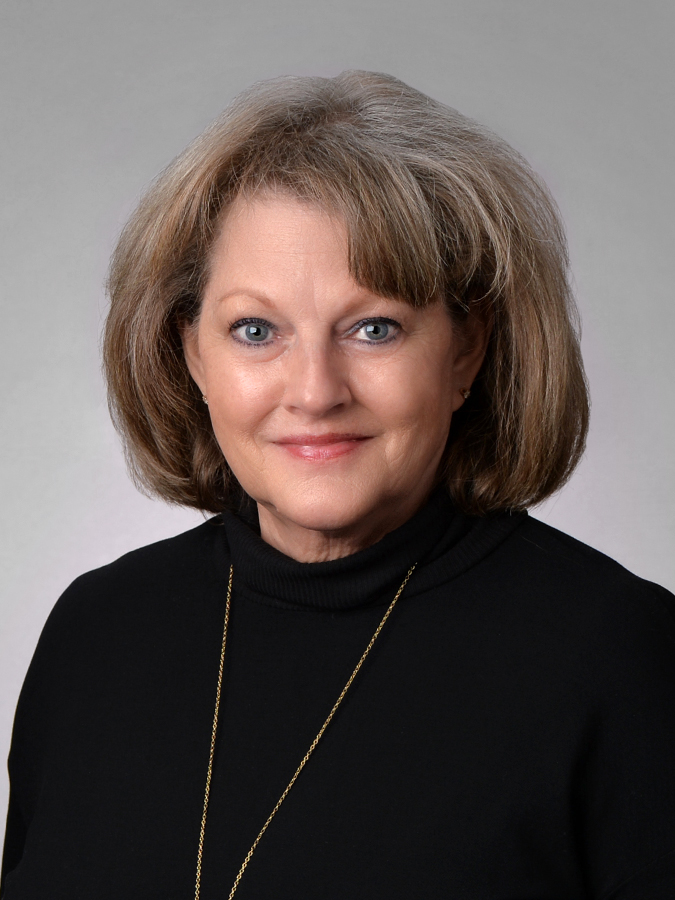
Prior to joining the EI-ISAC, Ms. Andino served as the chief state election official and Executive Director of the South Carolina State Election Commission for nineteen years. Ms. Andino was responsible for overseeing the conduct of primary, general and special elections in South Carolina to ensure that elections are conducted in a fair and impartial manner. She was also responsible for supervising county boards of voter registration and elections and serves as agency liaison with the General Assembly. The State Election Commission is an independent agency responsible for supporting the statewide voter registration system, statewide voting system, performing county compliance audits, administering a training and certification program for county election officials and conducting candidate filing.
Ms. Andino previously held various positions within the S.C. State Election Commission such as Deputy Executive Director and Director of Information Services and Special Projects. During this time, she coordinated the implementation of the National Voter Registration Act, also known as “Motor Voter,” assisted in developing a training and certification program for county voter registration and election officials and coordinated the implementation of the statewide voter registration system in county voter registration offices. Ms. Andino was also an adjunct faculty member in the Information Sciences Department at Midlands Technical College.
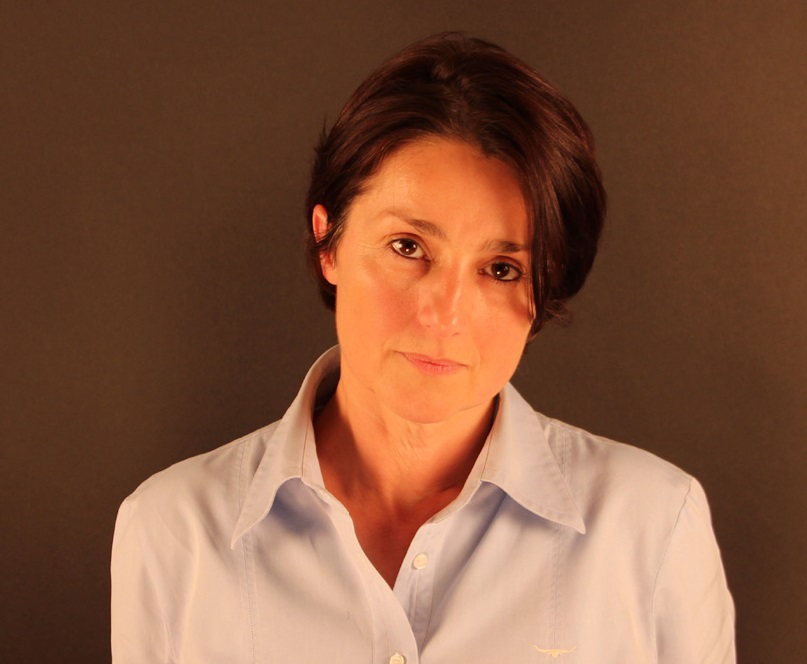
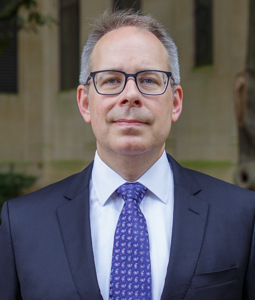
Professor Carl T. Dahlman, Ph.D., is the Director of the Walker Institute of International and Area Studies for the University of South Carolina. He is a political geographer whose research primarily focuses on the effects of armed conflict on human populations, especially the dynamics of ethnic cleansing/genocide and forced migration on post-war state-building processes in the former Yugoslavia and Middle East. His fieldwork has been funded by the National Science Foundation and other sources and his publications include a detailed co-authored book on post-war Bosnia in addition to over 40 articles and book chapters.
His work has appeared in French and Serbo-Croatian and he has published in the Atlantic Monthly. He is currently writing a book about post-war Kosovo, as well as investigating a variety of topics such as cultural landscapes, extradition, and quasi-states. Dahlman has received commendations for teaching excellence and he has offered a wide range of courses on global topics in both disciplinary and interdisciplinary curricula including courses on refugee studies, population and migration, political geography, and geopolitics, as well as introductory and capstone courses. After serving at the University of South Carolina as an assistant professor in the early 2000s, and then as a faculty member at Miami University where he directed their large interdisciplinary International Studies program, he returned to USC in 2022.
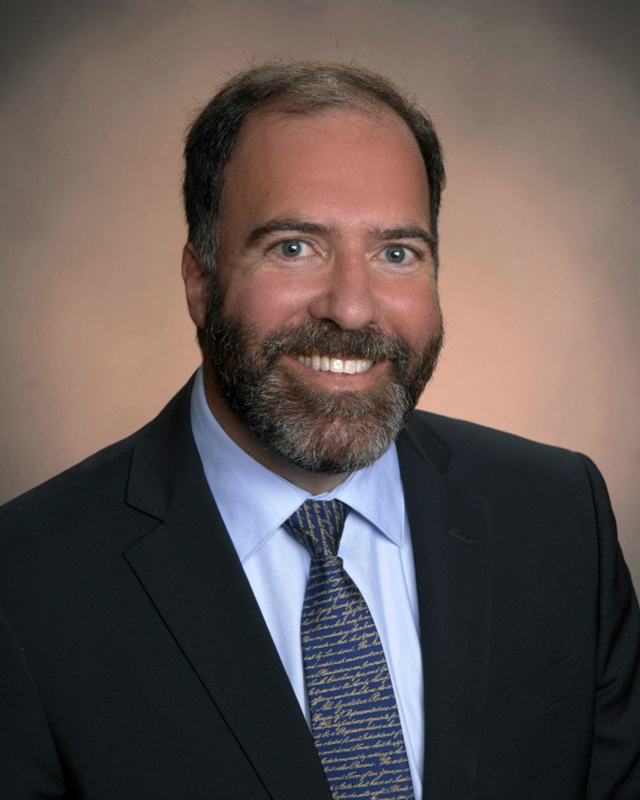
Michael R. Dimino is a Visiting Professor of Law at the USC Rice School of Law. His teaching and scholarship focuses on constitutional law and election law. Professor Dimino graduated from the State University of New York at Buffalo and Harvard Law School, and served as Articles Editor of the Harvard Journal of Law & Public Policy. Professor Dimino clerked for Judge Albert Rosenblatt of the New York State Court of Appeals, Judge Laurence Silberman of the United States Court of Appeals for the District of Columbia Circuit, and Judge Paul Friedman of the United States District Court for the District of Columbia. While teaching at the Widener Commonwealth Law School, Professor Dimino twice won the Faculty Scholarship Award and three times won the Outstanding Professor Award. He is an elected member of the American Law Institute, and a Fulbright scholar. He has authored or co-authored several articles and six books, including Voting Rights and Election Law (3d ed. 2021); Understanding Election Law and Voting Rights (2016); and Congressional Investigations and Oversight (2d ed. 2023).
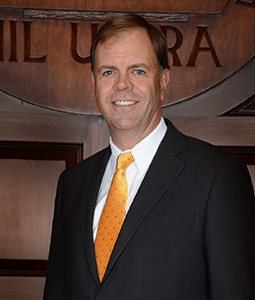
John Cannon Few is a Justice on the Supreme Court of South Carolina. He has been teaching law since 2005 when he began teaching Evidence to trial judges through the National Judicial College. He began teaching Evidence to law students as an adjunct professor in 2008. He currently teaches Advanced Evidence to third-year students at the University of South Carolina School of Law.
Justice Few was born and reared in South Carolina. He attended college at Duke University, where he served as Duke’s athletic mascot — the Blue Devil — during his junior year. John graduated from Duke in 1985 with an A.B. degree in English and Economics.
He then attended the University of South Carolina School of Law, where he was a member of The Order of Wig and Robe and The Order of the Coif. He also served as Student Works Editor of the South Carolina Law Review. He received his Juris Doctor degree in 1988.
Justice Few began his career as a law clerk to a federal district judge and then became a trial lawyer, a trial judge, and the Chief Judge of the South Carolina Court of Appeals.
Read his full biography on the South Carolina Supreme Court website.
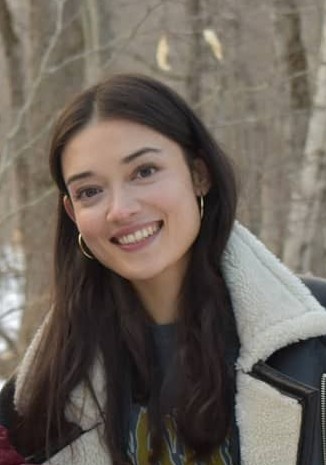
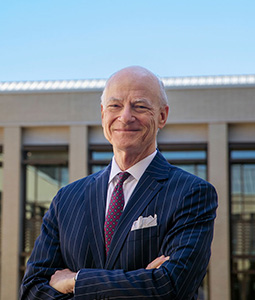
William C. Hubbard served as president of the American Bar Association in 2014–2015. As president, he led efforts to increase access to justice through innovation, reform the criminal justice system, provide legal assistance to unaccompanied immigrant children, improve support for victims of domestic violence, and strengthen the rule of law globally. He previously served a two-year term as chair of the ABA’s House of Delegates. Hubbard is a past president of the American Bar Foundation and a past president of the American Bar Endowment. From 2019–2020, he served as chair of the Standing Committee on the Federal Judiciary, which reports to the DOJ and the U.S. Senate on the qualifications of federal judicial nominees.
Hubbard is co-founder and chair of the Board of the World Justice Project, a multinational, multidisciplinary initiative to strengthen the rule of law worldwide.
In 2023, Hubbard was elected to the American Academy of Arts and Sciences. He is a fellow of the American College of Trial Lawyers, the Council of the American Law Institute (emeritus), as well as the Leaders Council of the Legal Services Corporation. He is an Honorary Master of the Bench of Middle Temple in London.
In 2002, Hubbard was presented the Order of the Palmetto, the highest civilian award presented by a South Carolina governor. In 2007, he received the American Inns of Court Professionalism Award for the United States Court of Appeals, Fourth Circuit. In 2016, the Burton Foundation, in collaboration with the Library of Congress, named Hubbard the recipient of its inaugural “Leadership in Law” award.
Hubbard served on the Board of Trustees of the University of South Carolina from 1986–2020 and served as chairman of the board from 1996–2000. He earned a Juris Doctor from the University of South Carolina School of Law in 1977 and a Bachelor of Arts in History, magna cum laude, from the University of South Carolina in 1974. As an undergraduate, Hubbard received the Algernon Sydney Sullivan Award, the university’s highest student award. In 2009, he received the university’s Distinguished Alumni Award. In 2010, the university awarded him its highest recognition, the Honorary Doctor of Laws.
After law school, Hubbard was law clerk to U.S. District Judge Robert F. Chapman. He is a former partner with Nelson Mullins Riley & Scarborough LLP in Columbia, SC.
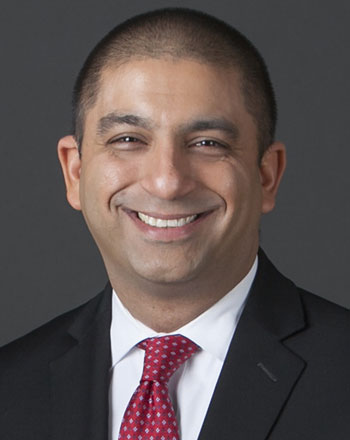
Jamil N. Jaffer is the Founder and Executive Director of the National Security Institute at the Antonin Scalia Law School at George Mason University where he also serves as an Assistant Professor of Law, Director of the National Security Law and Policy Program, and Director of the Cyber, Intelligence, and National Security LLM Program. Jamil also teaches classes on counterterrorism, intelligence, surveillance, cybersecurity, and other national security matters, as well as a summer course held abroad with U.S. Supreme Court Justice Neil M. Gorsuch. Jamil is also affiliated with Stanford University’s Center for International Security and Cooperation and previously served as a Visiting Fellow at the Hoover Institution from 2016 to 2019.
Jamil is also a Venture Partner with Paladin Capital Group, where he assists the firm with investments across the full range of its themes and theses, including a focus on dual-use national security technologies. Jamil also serves on the board of directors of RangeForce, a cybersecurity training and readiness platform startup and Tozny, a digital identity startup, and on the advisory boards of U.S. Strategic Metals, North America’s largest primary producer of cobalt, a critical mineral used in EV batteries, aerospace, and other national security applications; and Constella Intelligence, a deep and dark web intelligence startup. Jamil also serves as an advisor to Beacon Global Strategies, a strategic advisory firm and Duco, a technology platform startup that connects corporations with geopolitical and international business experts. Jamil is also the managing director of Trigraph Caveat Capital, a private investment vehicle.
Brian Leach holds dual master’s degrees in information systems security and data science, showcasing his strong cybersecurity and data analysis foundation. With over 20 years of experience in the electoral process, Brian has served as the Information Technology Director at the South Carolina State Election Commission, where he has played a critical role in safeguarding the integrity and security of the state's election systems. His professional achievements include a range of certifications, such as Certified Elections and Registration Administrator, Certified Data Privacy Solutions Engineer, CompTIA Cybersecurity Analyst, and several GIAC certifications in information security, reflecting his commitment to his field.
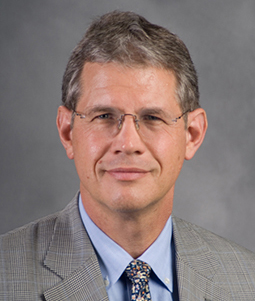
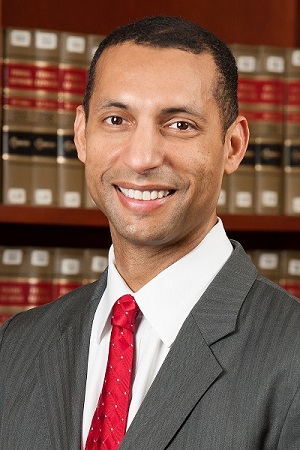
Spencer Overton is the Patricia Roberts Harris Research Professor of Law at the George Washington University. He is the author of the book Stealing Democracy: The New Politics of Voter Suppression, the law review article Overcoming Racial Harms to Democracy from Artificial Intelligence, and several other publications on democracy and race. He also directs GW Law's Multiracial Democracy Project, which is currently working on research projects on the implications of artificial intelligence and alternative election systems for truly representative democracy in the United States.
He has testified several times before Congress on policies to stop online disinformation and deepfakes (June 2020, October 2020, March 2023, and November 2023), voter suppression, and the Voting Rights Act. He has also appeared as a frequent commentator on election law issues on MSNBC, NPR, and other media outlets, and is a contributor to the Election Law Blog.
Professor Overton held several senior leadership roles during the Obama campaign, transition, and Administration. During the 2008 presidential campaign, he led over 140 experts as chair of the campaign’s Government Reform Policy committee. On the transition, he chaired the Election Assistance Commission Agency Review Team, served on the Federal Election Commission Agency Review Team, and helped write the Administration’s ethics guidelines while serving in the office of the General Counsel. During the Administration, he was appointed as Principal Deputy Assistant Attorney General for Legal Policy at the U.S. Department of Justice, and partnered with other senior officials in leading the Administration’s democracy policy efforts related to the Military and Overseas Voter Empowerment Act, the National Voter Registration Act, the Voting Rights Act, and the Administration’s response to the U.S. Supreme Court’s decision to allow unlimited corporate spending in federal elections.
Professor Overton’s work on the Jimmy Carter-James Baker Commission laid the groundwork for modern arguments against unnecessary voting restrictions. As a member of the DNC Presidential Nomination Scheduling Commission, he led an effort that resulted in Iowa restoring voting rights to over 80,000 returning citizens. He was also part of a group of commissioners that worked to successfully move more diverse states like South Carolina and Nevada to the beginning of the modern Democratic presidential primary process, which would later have significant implications in selecting the Democratic nominee in 2008 (Barack Obama) and 2020 (Joseph Biden).
From 2014-2023, Professor Overton served as the President of the Joint Center for Political and Economic Studies—America’s Black think tank—where he rebuilt the organization and worked closely with other civil rights leaders, the Congressional Black Caucus, and various other federal, state, and local policymakers to increase diversity among top political appointees and to devise and advance racially-equitable policies.
Professor Overton currently serves on the board of the Leadership Conference Education Fund, which is the education and research arm of the nation's oldest and largest civil and human rights coalition - The Leadership Conference on Civil and Human Rights. He has also served on the national boards of the American Constitution Society, the Center for Responsive Politics (Open Secrets), Common Cause, and Demos, and served as an advisory board member of the U.S. Election Assistance Commission.
Professor Overton practiced law at the firm Debevoise & Plimpton, clerked for U.S. Court of Appeals Judge Damon J. Keith, and graduated with honors from both Hampton University and Harvard Law School.
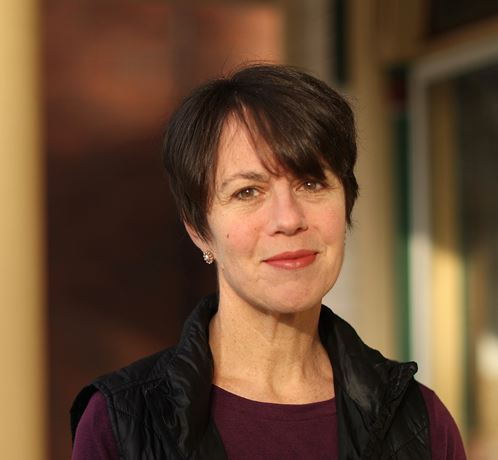
Lara Putnam is UCIS Research Professor of History and director of the Global Studies Center at the University of Pittsburgh. She researches social movements and political participation in local, national, and transnational dimensions. Her sole-authored books include The Company They Kept: Migrants and the Politics of Gender in Caribbean Costa Rica, 1870-1960 (UNC Press, 2002) and Radical Moves: Caribbean Migrants and the Politics of Race in the Jazz Age (UNC Press, 2013). She is co-lead of the Southwest PA Civic Resilience Initiative of the Pitt Disinformation Lab at Pitt’s Institute for Cyber Security.
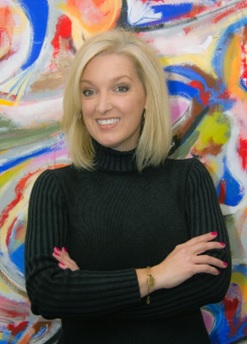
Jodi Salter is a highly experienced academic professional who has dedicated over 30 years of her career to producing innovative programs and inspiring students at the University of South Carolina. She has played a critical role in shaping the university's cyber educational offerings. Currently serving as the Director of Strategic Initiatives and Cyber Degree Program Manager with the Walker Institute of International and Area Studies, she conceived the new Cyber Intelligence (Cyber Policy and Ethics) degree program that launched in the fall of 2021. The program is interdisciplinary and holistic, with a focus on the human aspect of cyber and the challenges presented in today's rapidly changing cyber landscape. It offers a strategic educational option for students interested in the ever-growing and changing cyber arena. The Cyber Intelligence (Cyber Policy and Ethics) degree program is a testament to her innovative and forward-thinking approach to education by addressing cyber education as a business problem and then creating the arena for our next generation of cyber leaders to learn how to enable industry advancement.
In addition to her work at the University of South Carolina, Jodi is actively involved in the community, serving on key boards- locally, nationally, and internationally to include: the Columbia World Affairs Council (CWAC), Columbia Opportunity Resource (COR), Columbia Chamber of Commerce Diplomat Committee, SC Competes SC CyberSec and Palmetto AI Corridor committees and ATARC Cybersecurity and Workforce Development Working Group. Additionally, Jodi is the Founding Board Chair of South Carolina Women in Technology and the Director of SC Cyber, which brings education, government, and industry together to grow the cyber industry and workforce development in South Carolina.
Jodi's strengths include her ability to develop and strengthen initiatives, build authentic relationships, and create a positive and enriching environment for students and the community at large. She firmly believes that education, business, and cultural development are all integral to each other. Her career at the university and involvement in the community have given her a unique position to interconnect on many levels.
Connect with Jodi on LinkedIn: https://www.linkedin.com/in/jodi-salter-1453b39/
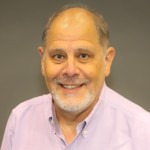
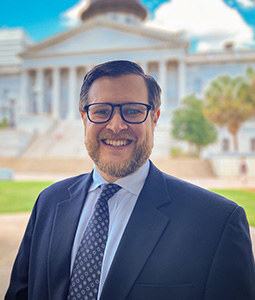
David Sella Villa is an Assistant Professor of Law at the University of South Carolina Joseph F. Rice School of Law who specializes in teaching Data Privacy Law and Cybersecurity. He was formerly the Chief Privacy Officer for the State of South Carolina and headed the state’s Enterprise Privacy Office.
David was previously an Adjunct Professor of Law at the University of South Carolina Joseph F. Rice School of Law, where he taught Data Privacy Law. He holds several privacy certifications. David is also a member of the SC Interagency Drone Users Consortium and the Sedona Conference. David is also the author of law review articles dealing with privacy and emerging technologies.
Prior to being Chief Privacy Officer for the State of South Carolina, David was Assistant General Counsel for the South Carolina Department of Administration. Prior to that, David worked as General Counsel for a private aviation company. He earned his law degree from the College of William & Mary, where he continues to serve as Adjunct Faculty. He also has degrees from the London School of Economics and West Virginia University.
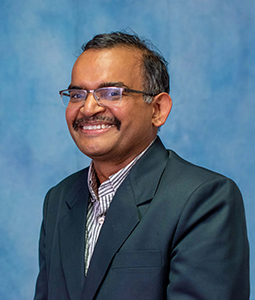
Biplav Srivastava is a Professor of Computer Science at the AI Institute and Department of Computer Science at the University of South Carolina which he joined in 2020 after two decades in industrial research. He directs the 'AI for Society' group which is investigating how to enable people to make rational decisions despite the real world complexities of poor data, changing goals and limited resources by augmenting their cognitive limitations with technology. His work in Artificial Intelligence spans the sub-fields of reasoning (planning, scheduling), knowledge extraction and representation (ontology, open data), learning (classification, deep, adversarial) and interaction (collaborative assistants), and extends to their application for Services (process automation, composition) and Sustainability (water, traffic, health, governance). Biplav has been involved with building innovative systems for decision support in domains as diverse as governance (IJCAI 2016, AI Magazine 2023), astronomy (AAAI 2018 best demo award), water (AAAI 2018), smart room (ICAPS 2018 demo runner up, IJCAI 2018), career planning (commercial product), market intelligence (AAAI 2020 deployed AI award), dialogs for information retrieval (ICAPS 2021), fairness assessment (AAAI 2021), computer games (AAAI 2022), generalized planning (IJCAI 2023), information spread in opinion networks (AAAI 2024 best demo award), transportation, group recommendation (teaming (AAAI 2024 deployed AI award), meals) and health.
Biplav’s works have led to many science firsts and high-impact commercial innovations valued over billions of dollars, 200+ papers and 70+ US patents issued, and awards for papers, demos and hacks. He is an ACM Distinguished Scientist, AAAI Senior Member, IEEE Senior Member and AAAS Leshner Fellow for Public Engagement on AI (2020-2021). He has a Ph.D. and a M.S. from Arizona State University, USA and a B.Tech. from IIT-BHU, India. More details about his group and him are at, respectively, https://ai4society.github.io/ & https://sites.google.com/site/biplavsrivastava/
Lisle primarily focuses his practice on appeals, public utility regulation, and complex civil litigation. He advises and represents public utilities in regulatory proceedings, defends governmental entities and public officials, and litigates constitutional and election-related issues in state and federal court. Through his diverse practice, Lisle has gained experience handling class actions, complex appeals, declaratory judgment actions, extraordinary writs, injunctions, and original jurisdiction cases.
In addition to practicing, Lisle enjoys teaching Election Law at the University of South Carolina School of Law. He is a member of the Advisory Board of the NMR&S Center on Professionalism, and he also serves as Vice President of the South Carolina Chapter of the Federal Bar Association, State Chair for the American Bar Association Council of Appellate Lawyers, and Co-Chair of the Appellate Subcommittee of the South Carolina Bar’s Judicial Qualifications Committee. In 2022, the Supreme Court of South Carolina appointed him to the Commission on Continuing Legal Education and Specialization.
Lisle has published articles in the South Carolina Law Review, the South Carolina Lawyer, and the South Carolina Young Lawyer. And he has lectured, moderated, and participated in multiple CLEs and panel discussions at events hosted by the South Carolina Court of Appeals, University of South Carolina School of Law, South Carolina Bar, South Carolina Defense Trial Attorneys Association, South Carolina Chapter of the Federal Bar Association, and American Bar Association Litigation Section.
A Columbia native, Lisle graduated cum laude from Wofford College, receiving his bachelor’s degree in government with a concentration in political thought and a minor in economics. He then earned his Juris Doctor from the University of South Carolina School of Law, where he tutored in legal writing and served as Editor in Chief of the South Carolina Law Review.
Prior to joining Robinson Gray, Lisle clerked for the Honorable H. Bruce Williams at the South Carolina Court of Appeals and the Honorable David C. Norton at the U.S. District Court for the District of South Carolina.
Rob is a member of the firm and practices in the areas of business litigation, administrative and regulatory law, and election law. Rob has represented clients before the South Carolina Supreme Court and other levels of state and federal courts and has appeared before many local and state government entities.
He has litigated complex constitutional issues, election law issues, and numerous business disputes. Rob provides counsel on ethics matters including representation before the South Carolina Ethics Commission and the Legislature’s Ethics Committees. He has litigated numerous election disputes, with clients including incumbents, challengers, county election commissions and other interested stakeholders. He often appears before local government councils, boards and commissions on issues ranging from procurement to annexation matters. During the 2010 Census cycle, Rob represented local government entities in redistricting challenges. Also, as co-counsel for the South Carolina House of Representatives, he defended the House redistricting plans at the trial court level and through the appeal to the United States Supreme Court. After the 2020 Census was released, Rob again represented local government entities and the legislature in redistricting matters.
Rob also has extensive experience in government law ranging from handling regulatory complaints before state agencies to being counsel for a South Carolina State agency. Rob is also a South Carolina Certified Mediator. As part of his service to the community, Rob regularly volunteers for groups that provide mediators for small claim matters in magistrate court.
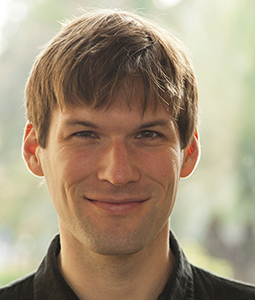
Bryant Walker Smith is an associate professor in the School of Law and (by courtesy) the School of Engineering at the University of South Carolina, as well as an affiliate scholar at the Center for Internet and Society at Stanford Law School.
Trained as a lawyer and an engineer, Smith advises cities, states, countries, and the United Nations on emerging transport technologies. He coauthored the globally influential levels of driving automation, drafted a model law for automated driving, and taught the first legal course dedicated to automated driving [pdf] (in 2012). Smith is currently writing on what it means for a company to be trustworthy. His publications are available at newlypossible.org.
Before joining the University of South Carolina, Smith led the legal aspects of automated driving program at Stanford University, clerked for the Hon. Evan J. Wallach at the United States Court of International Trade, and worked as a fellow at the European Bank for Reconstruction and Development. He holds both an LL.M. in International Legal Studies and a J.D. (cum laude) from New York University School of Law and a B.S. in Civil Engineering from the University of Wisconsin. Prior to his legal career, Smith worked as a transportation engineer.
